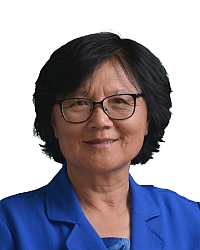TR2005-081
Layered Space-Time Structure with Statistical Rate Allocation
-
- , "Layered Space-Time Structure with Statistical Rate Allocation", IEEE International Conference on Communications (ICC), May 2005, vol. 1, pp. 563-567.BibTeX TR2005-081 PDF
- @inproceedings{Du2005may,
- author = {Du, J. and Gu, D. and Molisch, A.F. and Li, Y. and Zhang, J.},
- title = {{Layered Space-Time Structure with Statistical Rate Allocation}},
- booktitle = {IEEE International Conference on Communications (ICC)},
- year = 2005,
- volume = 1,
- pages = {563--567},
- month = may,
- url = {https://www.merl.com/publications/TR2005-081}
- }
- , "Layered Space-Time Structure with Statistical Rate Allocation", IEEE International Conference on Communications (ICC), May 2005, vol. 1, pp. 563-567.
-
MERL Contact:
-
Research Area:
Abstract:
We propose a modified layered structure for multiple-input multiple-output (MIMO) systems, where the layer detection order is fixed and the data rate for each layers i allocated based on the detection order and channel statistics. With Gaussian approximation of layer capacities, we derive the optimum data rate allocation and the amount of backoff from mean layer capacity is proportional to the standard deviation of the layer capacity. The minimum overall outage probability of a layered system is uniquely determined by the normalized capacity margin. We then investigate how to select the total information rate to maximize effective throughput. Simulation results show significant performance improvement with the proposed algorithm, and the performance gap between layered structure and the channel capacity diminishes with increasing ergodicity within each codeword.
Related News & Events
-
NEWS ICC 2005: publication by Jinyun Zhang and others Date: May 16, 2005
Where: IEEE International Conference on Communications (ICC)
MERL Contact: Jinyun Zhang
Research Area: CommunicationsBrief- The paper "Layered Space-Time Structure with Statistical Rate Allocation" by Du, J., Gu, D., Molisch, A.F., Li, Y. and Zhang, J. was presented at the IEEE International Conference on Communications (ICC).
